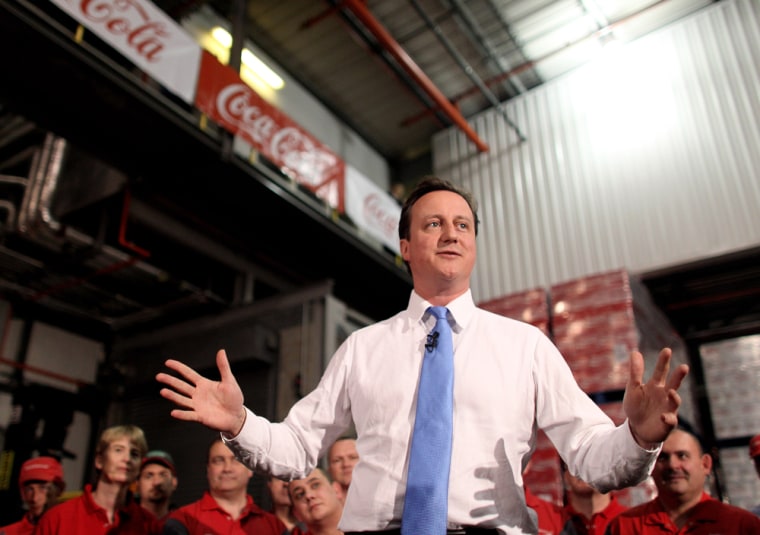In 1946, Winston Churchill coined the phrase “the special relationship” to describe the unique bond between the U.S. and U.K. But there are signs David Cameron, who polls suggest is likely to be elected Britain’s next prime minister, might not see it as quite so special.
While his Conservative Party's recently released election manifesto spoke of the U.K.’s “strong relationship with the United States,” one of its key foreign policy goals is to “establish a new special relationship with India, the world’s largest democracy.”
In 2006, Cameron wrote about the need for improved ties with India in the left-leaning Guardian newspaper. “For too long, politics in this country has been obsessed with Europe and America,” he wrote. “Serious and responsible leadership in the 21st century means engaging with far greater energy in the parts of the world where Britain's strategic interests will increasingly lie.”
And while Cameron supported sending British troops into Iraq in 2003, he wrote in the Guardian he had done so “grudgingly, unhappily, unenthusiastically” because of concerns about a “pre-emptive war.”
Some analysts predict a Cameron-led government could be so focused on the country’s giant deficit that, in similar circumstances, Britain might not be there for the U.S. in quite the same way as under Tony Blair.
“It’s no secret now, whoever wins the election will have to come in with some very big cuts in certain governmental spending programs. Defense, which I think will be pretty critical, will be one in the firing line,” Ruth Lea, a well-known economist and commentator who founded think tank Global Vision, told msnbc.com.
“[Cameron] will inevitably be very concerned about domestic matters and very concerned about finance and budgets, and this will inevitably put pressure on defense budgets here, which would, I suspect, reduce our military capability if we were called on to support any further American military offensives,” she added.
'Hard choices'
Jeremy Hunt, a Conservative lawmaker, does little to dispel the idea that Britain may reduce its role on the global stage.
“I hope not, but it's going to be difficult. We are going to have to make some hard choices. It’s going to be very difficult to square the circles we need to square,” he told msnbc.com.
Hunt said a Conservative government would be more questioning of the U.S. than Blair’s administration, but also insisted Cameron would be “a very strong friend of America.”
“He will be someone who is willing to be an honest critic when that’s called for, someone absolutely clear about the value of our transatlantic ties and someone who shares the values expressed by American presidents for years," Hunt said. "We bring the willingness to support America, to recognize America is a good thing in the world, but also to be honest and open when they are getting things wrong.
"[Former U.K. prime minister] Margaret Thatcher was a strong supporter of America, but she was absolutely not afraid to give them [U.S. leaders] a piece of her mind," he added.
